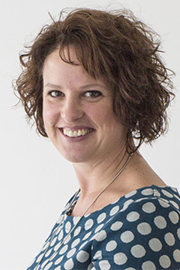 By Keynote ContributorDr. Suzanne JohnsonThe University of Manchester
By Keynote ContributorDr. Suzanne JohnsonThe University of Manchester Written by Keynote Contributor, Dr. Suzanne Johnson, Programme Director of the Transformative Oncology MSc at The University of Manchester.
Cancer incidence has skyrocketed in recent years and shows no sign of slowing down. According to data from Macmillan, a staggering 3 million people in the UK are currently living with cancer, which is estimated to rise to 4 million by 2030. Such data translates to half of all Britons receiving a cancer diagnosis throughout their lifetime, Cancer Research UK states. While there is no single cause for such growth – aging populations, advances in identification, and detection strategies all factor in – its impact on patient care across the globe is undeniable.
To achieve optimal care and treatment, this increase in patients requires a greater capacity of services and a greater number of specialists across the field of oncology. These specialists include discovery scientists, essential to advancing diagnostic and detection services, and all the components of multi-disciplinary teams who collaboratively decide on the best treatment strategies for patients. These teams can include oncologists, cancer nurse specialists, radiologists, nutritionists, physiotherapists, and other allied healthcare workers.

Image Credit: lenetstan/Shutterstock.com
There is a workforce deficit in the UK: 189 clinical oncologists, 390 consultant pathologists, and 1,939 radiologists are urgently required to meet current demand, according to a recent report from the Health and Social Care Committee. In practice, these shortages may mean that up to 340,000 people between 2019 and 2028 may miss out on an early cancer diagnosis, subsequently limiting access to the widest variety of treatment options. The pandemic exacerbated the pressure on health systems worldwide, resulting in a substantial patient backlog that may take over a decade to resolve.
The effect of the shortfall on healthcare professionals is also a concern. Citing burnout, stress, and concern for the quality of patient care, many professionals are involved in industrial action to draw attention to these problems within their health system – or in extreme cases, even leaving the medical field altogether.
Consequently, it is of utmost importance for the future of cancer care to address this shortage. But what has led to this deficit increase, and how can the sector establish a strong path forward?
Progressing toward personalized treatment
At present, all patients suffering from the same condition receive the same initial treatment. However, it is likely to only be 30% to 60% effective, according to a recent report from the NHS. However, cancer – or indeed cancers – are hundreds of unique diseases that require individualized treatment, as it is known to behave differently on a case-by-case basis.
Positively, the future of cancer care is being shaped by greater personalization, which could drastically enhance patient outcomes. However, significant progress must be made before such therapies become readily accessible. Indeed, health systems globally lack adequate numbers of staff who have undergone the highly specialized training required to keep pace with scientifical advances. Nursing, for instance, has historically related more to pastoral care than specialized treatment. Yet, as new demand for technically trained cancer nurse specialists rapidly rises, their roles and training will have to shift dramatically.
Bridging the gap through education
Despite major advances in cancer research, such shortages mean that most global healthcare systems cannot keep pace. To move towards personalized therapies that will aim to transform patient outcomes, it is essential that oncology specialists across the care pathway – doctors, nurses, geneticists, health data scientists, and researchers – develop a deeper understanding of individual cancers and their treatment plans.
Further, cancer professionals frequently encounter obstacles to gaining insight into how their work translates across the treatment pathway due to their limited practical experience of other oncology specialisms in a field with such a variety of job roles. Yet gaining this translational understanding is imperative for cancer care. We cannot underestimate higher education’s important role in bridging this gap by uniquely interlinking research, learning, and clinical practice.

Image Credit: fizkes/Shutterstock.com
What’s more, for medical professionals and biologists wishing to carve out a path in oncology, facilitating a greater synergy between education, research, and clinical decision-making can also create better pathways to channel their skills into the cancer care space.
Evidently, we cannot afford to reduce the capacity of the oncology workforce by enrolling a large portion of professionals into lengthy time-intensive programs. However, higher education courses comprised of shorter modules have been developed in response to this issue, allowing professionals to upskill without disrupting their personal and professional lives.
Structurally, these micro-credentials allow educators to adapt learning methodologies to keep students up to date with the latest advances, vital to progress in a field in which new discoveries are constantly emerging. Building skills incrementally also means that this holistic understanding can be implemented immediately into oncology professionals’ everyday work.
Implementing incremental, accessible upskilling through education will effectively lead to the growth of a multi-skilled workforce with a holistic understanding of the oncology field. To close the skills gap, retain healthcare workers, and ultimately transform patient outcomes through personalized care, education, and specialist training must become the top priority of the oncology field.
References
- Cancer Research UK. https://www.cancerresearchuk.org/health-professional/cancer-statistics/risk, Accessed April 11th 2023.
- House of Commons: Health and Social Care Committee. Cancer services: Twelfth Report of Session 2021–22, April 2022, https://committees.parliament.uk/publications/9562/documents/161967/default/.
- Macmillan. https://www.macmillan.org.uk/about-us/what-we-do/research/cancer-prevalence, Accessed April 11th 2023.
- NHS England. Improving outcomes through personalised medicine: Working at the cutting edge of science to improve patients’ lives, September 2016, https://www.england.nhs.uk/wp-content/uploads/2016/09/improving-outcomes-personalised-medicine.pdf
About Dr. Suzanne Johnson
Dr Suzanne Johnson i s Programme Director of the University of Manchester’s online Masters programme in Transformative Oncology, a course designed to upskill cancer professionals and ultimately transform clinical outcomes for patients with cancer. With a background in basic and translational cancer research, she is also a lecturer in the Division of Cancer Sciences and holds the position of Division lead for Social Responsibility.
s Programme Director of the University of Manchester’s online Masters programme in Transformative Oncology, a course designed to upskill cancer professionals and ultimately transform clinical outcomes for patients with cancer. With a background in basic and translational cancer research, she is also a lecturer in the Division of Cancer Sciences and holds the position of Division lead for Social Responsibility.
Disclaimer: This article has not been subjected to peer review and is presented as the personal views of a qualified expert in the subject in accordance with the general terms and conditions of use of the News-Medical.Net website.
Last Updated: Apr 18, 2023
Source: Read Full Article
